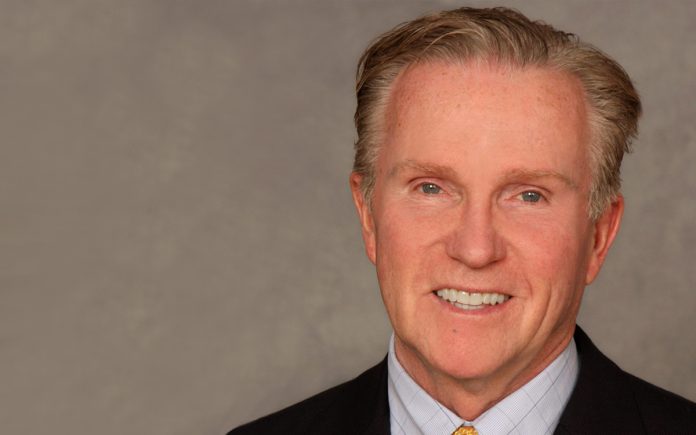Enjoy this lovely article by Dr Michael Myers, a psychiatrist who specializes in physicians’ health and has cared for doctors for many decades now. He brings his wealth of experience and lived wisdom to us all with his many books, on doctors’ health and wellbeing and physician suicide…
I organized and chaired a workshop at the recent American Psychiatric Association Annual Meeting called “When Physicians Die by Suicide: Insights from Their Survivors.” We heard brief presentations from four speakers, all women who have been bereaved by the loss of a physician loved one to suicide. Their stories were gripping, heartfelt, moving and evocative, as were those from the audience. I’ll come to the specifics in a moment.
Why is this subject important? Too many doctors in the United States are falling through the cracks of our health care system and dying by suicide each year – and some have received no treatment at all. Further, the aftermath of physician suicide is commonly shrouded in mystery and secrecy, leaving family members feeling lost and isolated. Precisely when they need and crave support, the bereaved (not all, but some) are shunned by friends and colleagues of their deceased loved one. The stigma that the ailing physician felt before his/her death is now being felt by the grieving family.
Four women’s stories
Carla Fine, a New York City writer and author of the classic No Time to Say Goodbye: Surviving the Suicide of a Loved One, lost her husband Dr. Harry Reiss, a urologist, to suicide in 1989. She spoke about how the stigma of suicide in the medical community defines the mourning process for those who are left behind— family members, patients, and colleagues of doctors. She also offered practical suggestions for psychiatrists who treat survivors of suicide loss and ways in which clinicians and survivors can work together to foster growth and healing.
Dr. Sarah Smith, a resident in psychiatry in Toronto, Ontario, lost her father Dr. Stephen Smith, an emergency medicine physician, in 2017. Expanding on Fine’s comments, she spoke about the ways in which stigma towards mental health in medicine affects physicians’ perceptions of their own distress and how they in turn are viewed by their medical colleagues. She also described the barriers to ailing physicians seeking help and expanded her reach to how much stigma impedes organizational change and research.
Susan Shaffer Solovay, a New York City health consultant, lost her brother Dr. Ben Shaffer, a well-known orthopedic surgeon, in 2015. Recalling his repeated statement to her, “game over,” in one of their last telephone calls, she ruefully wishes that it was “game intermission.” She recounted in detail the many medical and psychological factors in her brother’s life that came together in a frightening perfect storm leading to his fateful action. Solovay also commented on some specifics of her brother’s treatment (including the retirement of his psychiatrist) that she thinks may have worsened his broken and desperate state.
Dr. Karen Miday, a psychiatrist in private practice in Cincinnati, Ohio, lost her physician son Greg to suicide in 2012. An internist suffering from an anxiety disorder and substance use disorder, he was about to start a fellowship in oncology when he relapsed. Already living with years of shame, this became magnified when he self-reported to his state’s physician health program. His safety plan with his treating psychiatrist seemed at odds with the ascendancy of the state’s physician health program and its recommendation of admission to a treatment center. Greg took his life at home, never reporting to the rehab center. His mother thinks he panicked and fell into an acute suicidal crisis triggered by a perceived threat of losing his medical license. She is now passionately committed to ensuring that all of the nation’s physician health programs have adequate psychiatric consultation and oversight, and that organized psychiatry work with the Federation of State Physician Health Programs to make this happen.
Three overarching themes
There were three overarching themes that I found galvanizing in the narratives and the discussion. First, each of the panelists brought their loved one into the room. We heard how these amazing physicians lived, not just how they died. They all loved being a physician. They were all multi-talented with so many interests outside of medicine. They were all artistic and creative. They were sensitive, fun, and loved by so many people. Second, the speakers, by telling their stories, hope they can save another doctor’s life. Their husband, father, brother, or son will not have died in vain. Third, the psychiatrists in the audience (and there were a lot of them, given that our session was at 8:00 am) were not only warm and gracious in their feedback but also personally touched and emotionally affected. A few came to the microphone to talk about how they too had lost a physician loved one to suicide. Some added that they had never “come out” like this before.
How gratifying to create a safe place for psychiatrists, from all over the world but with a common tragedy, to make a soothing connection and not feel so alone. Afterwards, two psychiatrists told me that they came away from the workshop feeling much better equipped to treat members of a doctor’s family who are trying to cope with bereavement associated with suicide.
I want to extend a huge thank you to all the speakers, and everyone who attended!
This article was first published in Psych Congress Network on 20 June, 2018 and is reprinted with kind permission.
Physician suicide is but the tragic tip of the iceberg of the problems endemic in medicine, with anxiety, depression, fatigue, exhaustion, burnout, relationship problems and substance abuse also rife in our profession. It is time for us to stop trying to treat doctors as somehow superhuman, and to start treating them as people, with the same wants and needs as anyone, and deserving of the same love and care as everyone else.
Here are some more articles by Dr Myers on this topic:
MORE: Saving a Female Doctor’s Life: Thinking Outside the Box










Why have we created a society, where we find it so hard to reach out for support?
This has been such an important part of my healing process, asking for help has allowed me to understand that everyone is just the same.
When we truly reach out to another person, miracles happen!